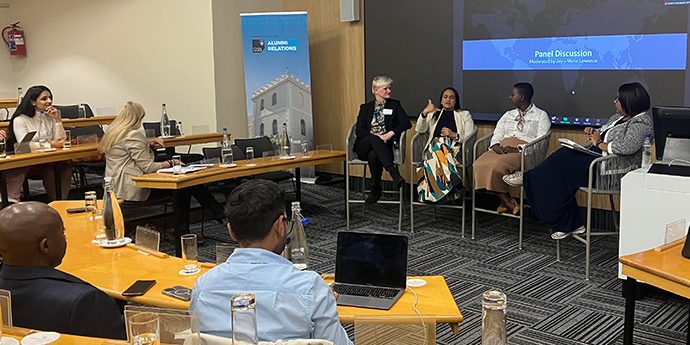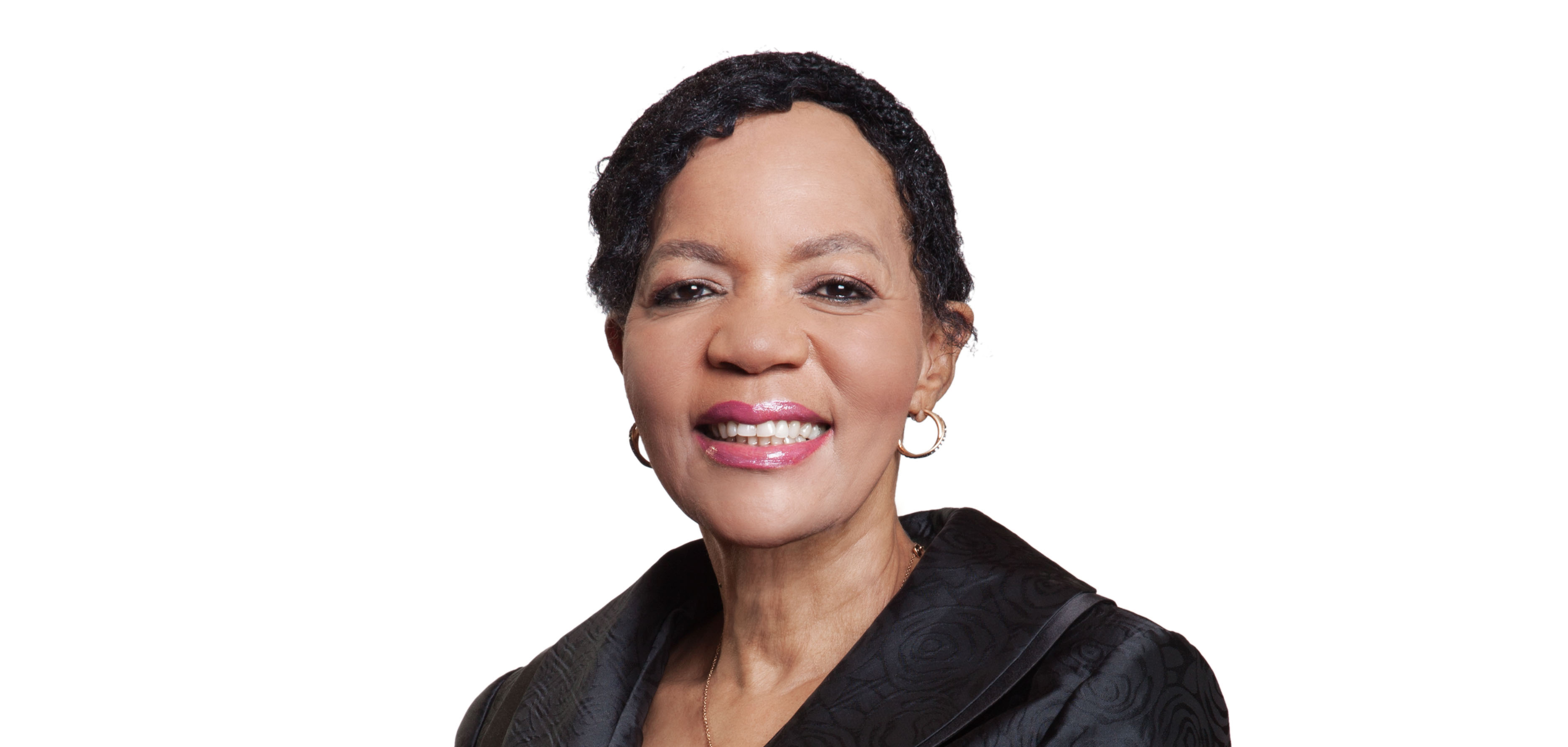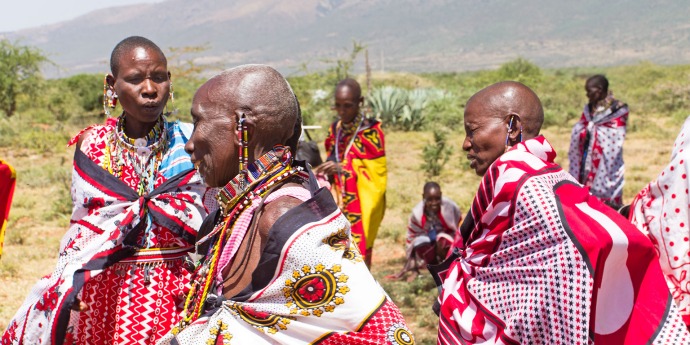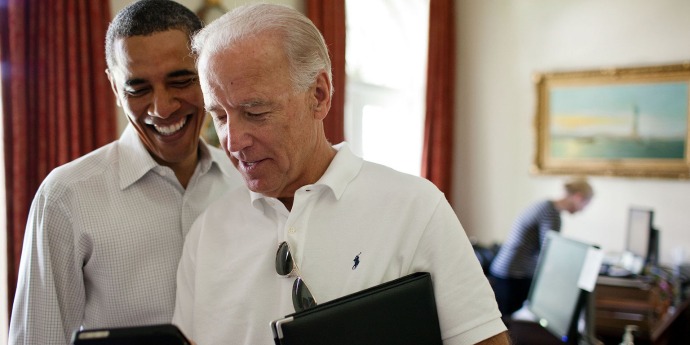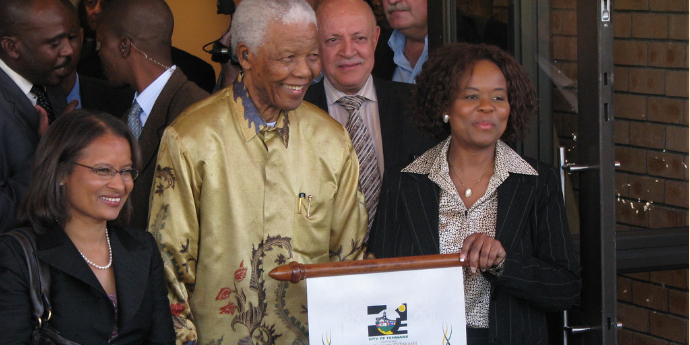The COVID-19 pandemic has shaken the world, plunging countries into economic and social turmoil. Interestingly enough, however, the countries that are handling the virus outbreak best - are run by women. Countries like Germany, Norway, Denmark, Taiwan as well as New Zealand, whose Prime Minister Jacinda Ardern did not only act quickly and decisively but empathetically as well, with regular live messages to citizens from her home (where a children’s toy featured prominently in the background of one of these).
Even though women leaders are in the minority - in countries as well as at organisations around the world - where they DO occupy a position of leadership, they make their presence felt. New research from McKinsey & Company, for example, shows that the business case for diversity on top teams continues to get stronger; the most diverse companies are more likely than ever to outperform their least diverse peers on profitability, by 48% in fact. McKinsey speculates that some of the reasons for this might be that women tend to, more frequently than men, adopt behaviours such as intellectual stimulation, inspiration, and participative decision-making that are effective in addressing challenges. Others think that women are more likely to be able to gain the trust of others, giving them an edge, especially in a crisis situation.
“Women are more authentic,” says Jani Phiri, hospitality and direct marketing manager at Rhebokskloof Wine Estate. “They lead with compassion and excel at core values such as communication, listening and transparency, all of which are of paramount importance in a crisis, because this reinforces trust.”
Phiri, like millions of other women leaders around the world, is finding work during COVID-19 more challenging than ever as she has to juggle childcare duties — she has a one-year old daughter — with an increased demand for her input and insights and very real pressures on business survival, all while having to adapt to working remotely.
Leaders at this time are having to make tough decisions, like initiating changes to company strategy or operations - often without lengthy preparation or the usual planning. “As a business you have to be proactive in your approach and very quickly reassess an idea or project’s success or failure and adapt. With a decline in income, we cannot afford to carry on with unprofitable endeavours,” she says.
Exploring new possibilities can be stressful and coping with this uncertainty brings pressure. But Phiri says women are able to deal with this complexity. “Women lead with their heart and their head. There is a better understanding of the mental impact of what people are going through, looking after teams and the people who represent products and brands. Caring for communities is vital right now and women leaders are more likely to acknowledge that.”
There is plenty of research to back up this view. Author Carol Kinsey Goman demonstratesthat women are better at reading body language and non-verbal cues and they are better at listening and displaying empathy. She defines men’s top communication skills as being a commanding physical presence, an ability to talk directly and to effectively display power. Other studies also point out that women perform better under pressure than men. University of California researchers said women do not respond to stress the same as men do, being more focused on peer bonding, caring and connection - qualities that have become even more valuable in the time of COVID-19.
As companies and organisations begin to resume “normal” operations under Level 3 Lockdown, it is likely therefore, that having more diverse and inclusive teams will help them during these difficult times. A global 2018 study from DDI showed that companies that employed more women were not only more productive, but also functioned better. Where there was a gender diversity of at least 30% overall in leadership roles, the companies performed better when it came to key leadership and business outcomes, with leaders working twice as well to find solutions and identify opportunities and 1.5 times more likely to work across sectors in an organisation.
Lenore Brander, an Information Technology Commercial Manager and the founder of She Leads Cape Town — a local group that supports professional women and encourages leadership development — thinks that because of the unique advantages that they bring, women’s roles are expanding at this time. “We need to build trust, become more understanding and bring people together. I have seen a shift in leaders that have been able to do so now and achieve great results and increase motivation.” Part of this, she believes, lies in embracing the changes in our working lives to build better relationships with co-workers, clients and partners. “There is no way to escape it during zoom calls!”
Brander says that she has also seen a surge of women stepping forward to support and empower other women. “There are so many positive developments in this time too.”
Organisations that harness this momentum will be setting themselves up for future success. While many may feel that focusing on diversity and inclusion at this time is a luxury they cannot afford, they couldn’t be more wrong. As Melinda Gates, former Microsoft general manager and co-founder of the global charity Bill & Melinda Gates Foundation said in her book, The Moment of Lift, “We need the help of every advocate now. Women and men. No one should be left out. Everyone should be brought in. Our call is to lift women up - and when we come together in this cause, we are the lift.”
Kumeshnee West is the Director of Executive Education at the UCT Graduate School of Business.
The UCT GSB is committed to building the future of women in leadership through its transformative learning opportunities. The school offers two short courses that are targeted at supporting women as they advance on their leadership journey: The Developing Women in Leadership programme and the Executive Women in Leadership programme, both focus on developing leadership practice and give women the tools to increase their impact and visibility. Through its academic programmes like the MBA and the Executive MBA too — the school supports and enables women leaders.



